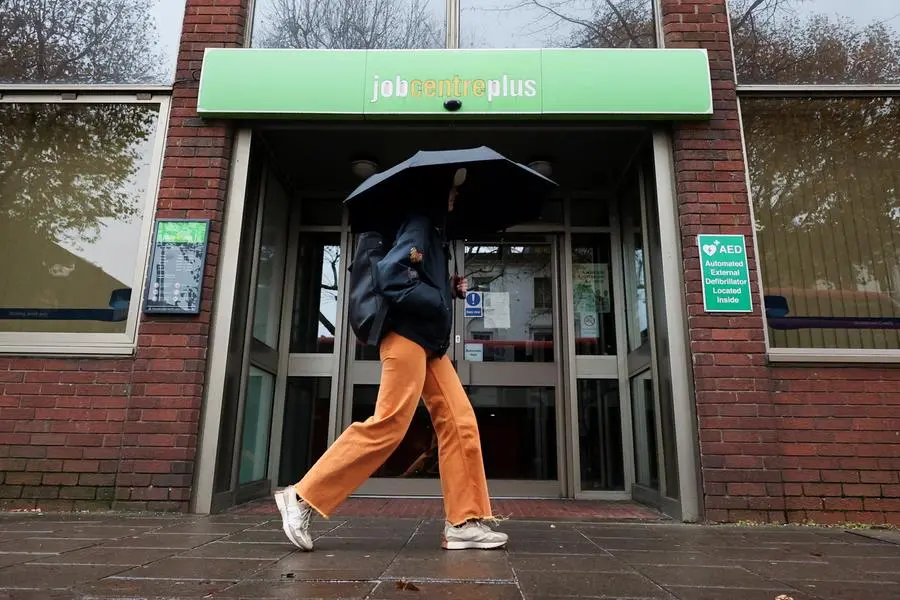PHOTO
British businesses this month cut staff numbers at the fastest pace in almost four years, raised prices and turned more pessimistic about the outlook, placing much of the blame on the new government's tax increases, a survey showed.
The preliminary S&P Global Flash Composite Purchasing Managers' Index, published on Monday, held at 50.5 in December, remaining just above the 50.0 no-change level but below expectations in a Reuters poll of economists for a rise to 50.7.
A measure of activity in manufacturing fell to its lowest in 11 months at 47.3 and although the services sector improved to 51.4 from 50.8, employment across both sectors contracted by the most since January 2021, during the COVID pandemic.
"Businesses are reporting a triple whammy of gloomy news as 2024 comes to a close with economic growth stalled, employment slumping and inflation back on the rise," S&P Global Market Intelligence's chief business economist, Chris Williamson, said.
"Economic growth momentum has been lost since the robust expansion seen earlier in the year, as businesses and households have responded negatively to the new Labour government's downbeat rhetoric and policies," he added.
Finance minister Rachel Reeves hit businesses with higher social security contributions in a budget announcement on Oct. 30, having paved the way with gloomy messaging about the tough outlook and the poor state of the public finances.
Companies responded to the budget and government plans for new, costlier rules around staffing by not replacing staff who left. Excluding the pandemic period, the fall in employment was the sharpest since the global financial crisis in 2009.
Some firms also cut hours and proceeded with previously planned restructurings.
Other surveys have also shown a drop in hiring intentions by businesses following the budget while official data showed the economy contracted in both September and October, the first back-to-back monthly shrinkages since early in the pandemic.
The PMI pointed to a stalling of the economy in final quarter of 2024 and possibly worse to come in early 2025, Williamson said.
"Policymakers at the Bank of England may be cautious about cutting interest rates, however, given the resurgence of inflation being signalled, adding further to downturn risks in 2025," he said.
Prices charged by firms rose at the steepest pace in nine months as input costs including salaries went up.
New orders fell for the first time in over a year, led by manufacturing which was hit by a drop in demand from clients elsewhere in Europe, and expectations for the year ahead were the weakest since December 2022.
The BoE is expected to keep rates on hold on Thursday after its December meeting. Investors will be watching for any sign of concern at the central bank about a downturn in the jobs market which could raise expectations about faster rate cuts.
(Writing by William Schomberg; Editing by Toby Chopra)





















